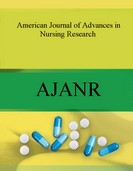Abstract
Title
A STUDY TO ASSESS THE NUTRITIONAL STATUS OF SCHOOL
CHILDREN AND ITS RELATION TO MID DAY MEAL
PROGRAMME IN A SELECTED RURAL SCHOOL, BANGALORE
Author
Tejeshwari. B. V
Email
Tejeshwari@gmail.com
keyword
Assess,
Nutritional Status,
School Children, MidDay Meal
Abstract
The health of children and youth is of fundamental importance. Over 1/5th of our
population comprises of children aged 5-14 years, i.e. the group covering primary and
secondary education. As today?s children are the citizens of tomorrow?s world, their
survival, protection and development are the prerequisite for the future development of
humanity. Without ensuring optimal child growth and development efforts to accelerate
economic development significantly will be unsuccessful. Many children reach school with
an empty stomach in the morning, since a good early morning breakfast is not part of
household routine. Poverty is the main issue, and it has impact on primary education as
well. Because of poverty the participation in primary education is low. The challenge for us
in the country has been to ensure fewer and fewer children go to bed hungry. The Supreme
Court of India in one of its landmark decisions linked a feeding programme to the
government's quality education programme. This was to encourage poor families to enroll
their children in government schools and there by enable those to guarantee at least one
square meal a day called as MDMS, (midday meal scheme) all State Governments in the
country have to ensure that every child coming to a government school gets one
wholesome meal for lunch on school days. Objectives: 1. To assesses the nutritional status
of school children. 2. To identify the relation of nutritional status with mid-day meal
programme Design: Descriptive survey design was used to study to assess the nutritional
status of school children and its relation to mid-day meal programme in a selected rural
school, Bangalore. 66 primary school children, in selected rural schools Bangalore were
recruited by non-probability purposive sampling technique. Necessary administrative
permission was obtained from concerned authority. Structured interview schedule was
used to elicit the baseline data and structured questionnaires were used to elicit the
knowledge regarding mid-day meal among selected rural school children, Bangalore.
Setting: The study was conducted in selected rural schools, Bangalore, 66 samples were
recruited for the present study. Result: The data was analyzed by using descriptive and
inferential statistics. Nutritional status of school children was assessed and tabulated, out
of 66 school children according to weight for age status out of 66 school children, 14 only
(21.21 percentages) is having normal nutritional status. Out of that 24 (36.36%) are having
first degree malnutrition and 26 (39.4 percentages) are having second degree malnutrition.
Only 2 (3.03 %) are having third degree malnutrition. It is evident that males are more
prone to malnutrition. Out of 66 school children, 40.9 % are having normal nutritional status. Out of 66, 57.5 % are mildly impaired and 1.6% is severely impaired. Only 3.03 %
of the school children are having third degree malnutrition. It is evident that males are
having more impairment (3.12%), when compared to females (1.6%). Conclusion: - The
overall experience of conducting this study was satisfying and enriching the knowledge.
The study was a new learning experience for the investigator. The study shows that there is
a great need to develop and implement Nutritional Status of School Children and Its
Relation to Mid-Day Meal Programme.













